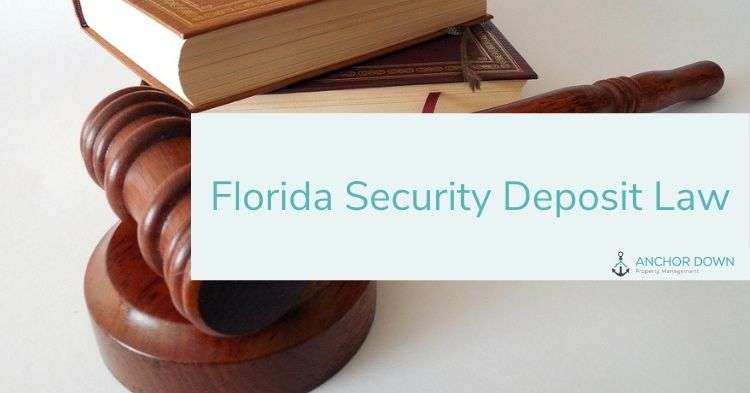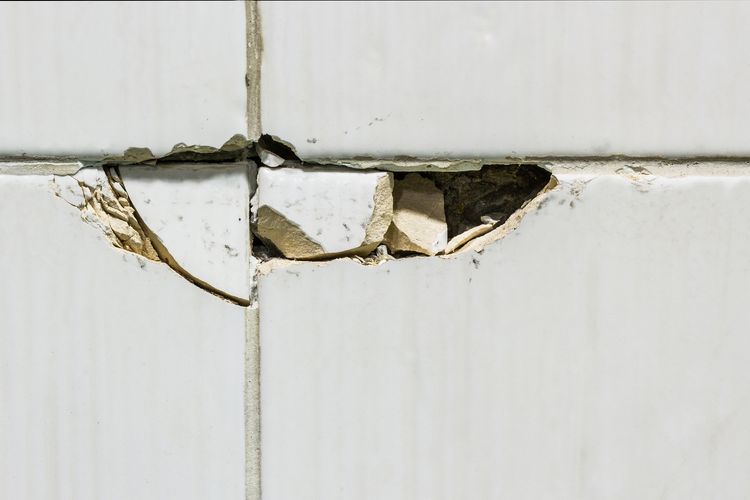
A security deposit is any money, other than rent, that a tenant pays a landlord before moving into a rental property. It is refundable, whether in whole or in part, after a tenant moves out.
Basically, landlords require security deposits to help cushion them against financial losses that a tenant may cause by doing things like:
- Refusing to pay rent.
- Causing negligent property damage.
- Abandoning the unit.
- Failure to clear utility bills.
Florida, just like other states, has a statewide security deposit law. Understanding the basic provisions of this law is essential to preventing potential conflicts with tenants.
Whether you are just starting out or are a seasoned landlord looking to refresh your knowledge, here is the basic overview of the Florida security deposit law.
1. Is there a limit to how much a landlord can charge as security deposit?
Some states cap how much a landlord can charge their tenants as security deposit. In Florida, however, landlords aren’t limited. They are free to charge any reasonable amount.
2. How should landlords store a tenant’s security deposit?
The Florida security deposit law does have a provision on how landlords should store security deposits. Landlords have three options.
The first option is to post it as a surety bond. A surety bond is a form of insurance, similar to a security deposit, that provides a contractual promise. The bond company will then compensate you in the event the tenant violates the terms of the agreement.
Secondly, a landlord can deposit it in an interest-bearing account. You must then pay any interest accrued to the tenant at the end of the lease term.
And thirdly, landlords have the option to store it in a normal account. You should, however, make sure not to commingle the tenant’s funds with your personal funds. Additionally, unless the funds are due, the funds are out of bounds.

3. Does a landlord need to notify the tenant upon receiving their security deposit?
Once you receive your tenant’s security deposit, you must notify your tenant of the same. In the notice, make sure to mention three important things.
- The name and address of the banking establishment holding the deposit of the tenant.
- Whether you are commingling the tenant’s deposit with other funds or not.
- If stored in an interest-accruing account, the rate of interest rate.
And if at any point you decide to change the financial institution storing the tenant’s deposit, you must notify your tenant of the same within a period of 30 days.
4. Is a walk-through inspection necessary in the state of Florida?
Walk-through inspections help document the property’s condition in relation to how it was at move in. Generally, most leases require tenants to return back the property in the same condition they found it, less normal wear and tear.
Sadly, that is not always the case in the vast majority of cases. The following are examples of property damages exceeding normal wear and tear.
- Missing or cracked tiles.
- Broken mirrors or appliances.
- Broken plumbing fixtures.
- Mold growth as a result of tenant’s negligence.

In any of these cases, a tenant will be liable for the cost of repair. Consequently, the landlord will deduct the appropriate costs from the security deposit to help fix the damage.
That being said, walk-through inspections aren’t necessary in the state of Florida.
5. What reasons can compel a landlord to keep all or a portion of the tenant’s security deposit?
As already told, a security deposit helps cushion a landlord against any financial liability a tenant may cause. Good examples of such liabilities include:
- A tenant breaking the lease early. A lease or a rental agreement is a legally binding agreement. Without a lease termination clause or a legally valid reason to do so, a tenant stands to lose the security deposit or even more.
- Refusal by the tenant to pay the rent due.
- The tenant causing excessive property damage. Tenants are liable for any damage exceeding normal wear and tear.
- Failure by the tenant to pay outstanding utility bills. Such bills may include electricity, water and garbage disposal bills.
6. When should the landlord return the tenant’s security deposit?
In the state of Florida, landlords must return the deposit back to their tenant within 15 days once a tenant moves out. Plus, if you stored the deposit in an interest earning account, you must also include any accrued interest as well.
In the event you’ve made deductions, then you must notify your tenant within 30 days after moving out. If you fail to do this, then you risk forfeiting the right to make any deductions to the deposit.
If the tenant objects the deductions, then you may need to seek assistance from the courts. However, if they don’t, then you’ll have 30 days after notifying the tenant of the deductions to return the remaining portion of the deposit.
7. What happens if the property changes hands?
In such a case, you’ll have two options to consider. One of these options is to transfer the entire deposit to the new owner. Then, the incoming owner must let the tenant know of the same through a written notice.

The notice must state the name and address of the new owner, as well as the amount transferred to them by the outgoing landlord as security deposit. With all this done, the incoming owner will then be liable for storing the tenant’s security deposit.
The other option is to refund all or a portion of the deposit back to the tenant. If you make any deductions, then you must include an itemized list of those deductions alongside the remaining deposit amount.
There you have it. A basic overview of the security deposit laws in the state of Florida. To read about all Landlord tenant laws, read this useful article. If you need further clarification, please consider hiring a professional property management company like Anchor Down Property Management. They will be happy to help you in all matters regarding your property, including leasing it to qualified tenants.
